#african american authors
Text
...like the omen
I am not here
I am clearly not
I could cry
Fill a mug
And it would empty
To you
But the age would strip cup
Alchemize it to glass
I am not here
I am clearly not
The crawl over my skin
The deep rooted knots
An illusion of the worst kind
Pain so crippling
But you dont believe it
I am not here
I am clearly not
Unless I leave for good
Now you have these thoughts
Lies I suspect
Because I cant reply back
To remind you of your silence
And your lack
The empty responses
"You'll be alright"
But all of the sudden
You knew something wasnt right
Oh now you care
Or you wish you were there
Or I'd come to you
Like I wasnt right there
I am not here
Clearly I am not
In the dark I drown
In the brown I rot
I lacked the desire to mask
You feign fear to ask
I reached out my hand
The side you can see
Funny how seen the unseen
Can be
Until seeing is noticing
Humanity
I am not here
I am clearly not
D. Ondria
03022024
#ecosystem of creatives#african american writers#blackgirlmagic#african american authors#originalbydondria#black writers#creative writing#black creatives#black women writers#original by d ondria
2 notes
·
View notes
Text
There are years that ask questions, and years that answer.
— Zora Neale Hurston
#african american authors#african american anthropologists#harlem renaissance#quotes#advice for life#sorrow
3 notes
·
View notes
Text
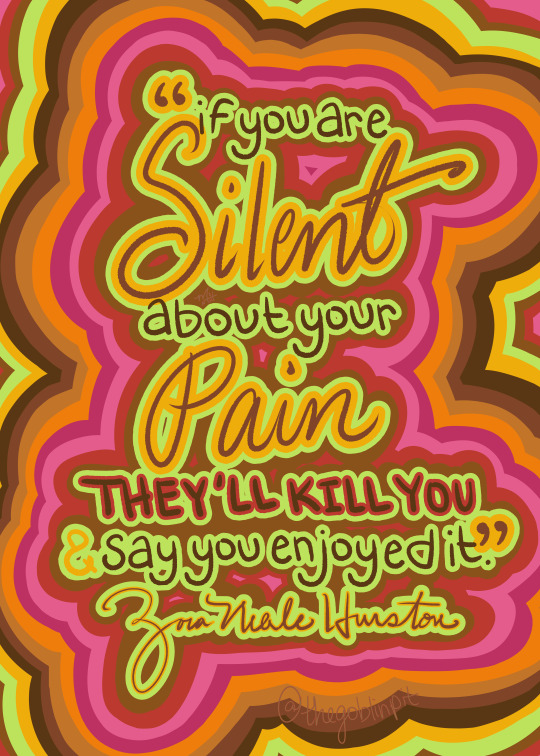
this was SO MUCH FUN. "If you are silent about your pain they'll kill you and say you enjoyed it." -Zora Neale Hurston
This project is available on my redbubble!
https://www.redbubble.com/shop/ap/150622215?asc=u
#word art#my art#art by the goblin pit#goblin posting#black lives matter#blm#harlem renaissance#zora neale hurston#american literature#african american authors#black history#civil rights#womens rights#lift black voices
2 notes
·
View notes
Text
I want to read Octavia E. Butler's Parable of the Sower. The problem is it's the first book in the Earthseed Trilogy and she died before she could write the Third book. I don't want a fucken cliffhanger. Does anyone have any advice?
#Sci-fi#books#novel#Booklr#reader's community#Octavia E Butler#afro futurism#speculative sci-fi#African American authors#black writters
2 notes
·
View notes
Photo

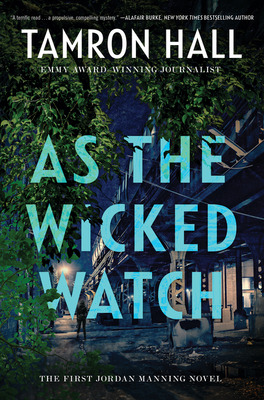

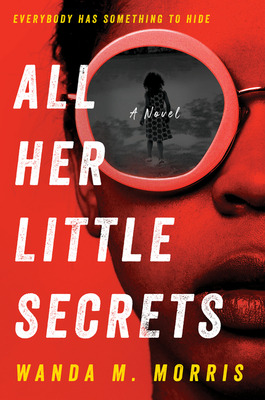
Mystery Titles by African American Authors: a list
Jackal by Erin E. Adams
A young Black girl goes missing in the woods outside her white Rust Belt town. But she’s not the first—and she may not be the last. . . .
It’s watching.
Liz Rocher is coming home . . . reluctantly. As a Black woman, Liz doesn’t exactly have fond memories of Johnstown, Pennsylvania, a predominantly white town. But her best friend is getting married, so she braces herself for a weekend of awkward and passive-aggressive reunions. Liz has grown, though; she can handle whatever awaits her. But on the day of the wedding, somewhere between dancing and dessert, the bride’s daughter, Caroline, goes missing—and the only thing left behind is a piece of white fabric covered in blood.
It’s taking.
As a frantic search begins, with the police combing the trees for Caroline, Liz is the only one who notices a pattern: a summer night. A missing girl. A party in the woods. She’s seen this before. Keisha Woodson, the only other Black girl in school, walked into the woods with a mysterious man and was later found with her chest cavity ripped open and her heart missing. Liz shudders at the thought that it could have been her, and now, with Caroline missing, it can’t be a coincidence. As Liz starts to dig through the town’s history, she uncovers a horrifying secret about the place she once called home. Children have been going missing in these woods for years. All of them Black. All of them girls.
It’s your turn.
With the evil in the forest creeping closer, Liz knows what she must do: find Caroline, or be entirely consumed by the darkness.
As the Wicked Watch by Tamron Hall, T. Shawn Taylor
When crime reporter Jordan Manning leaves her hometown in Texas to take a job at a television station in Chicago, she's one step closer to her dream: a coveted anchor chair on a national network.
Jordan is smart and aggressive, with unabashed star-power, and often the only woman of color in the newsroom. Her signature? Arriving first on the scene—in impractical designer stilettos. Armed with a master's degree in forensic science and impeccable instincts, Jordan has been able to balance her dueling motivations: breaking every big story—and giving a voice to the voiceless.
From her time in Texas, she's covered the vilest of human behaviors but nothing has prepared her for Chicago. Jordan is that rare breed of a journalist who can navigate a crime scene as well as she can a newsroom—often noticing what others tend to miss. Again and again, she is called to cover the murders of Black women, many of them sexually assaulted, most brutalized, and all of them quickly forgotten.
All until Masey James—the story that Jordan just can't shake, despite all efforts. A 15-year-old girl whose body was found in an abandoned lot, Masey has come to represent for Jordan all of the frustration and anger that her job often forces her to repress. Putting the rest of her work and her fraying personal life aside, Jordan does everything she can to give the story the coverage it desperately requires, and that a missing Black child would so rarely get.
There's a serial killer on the loose, Jordan believes, and he's hiding in plain sight.
Bluebird, Bluebird by Attica Locke
When it comes to law and order, East Texas plays by its own rules--a fact that Darren Mathews, a black Texas Ranger, knows all too well. Deeply ambivalent about growing up black in the lone star state, he was the first in his family to get as far away from Texas as he could. Until duty called him home.
When his allegiance to his roots puts his job in jeopardy, he travels up Highway 59 to the small town of Lark, where two murders--a black lawyer from Chicago and a local white woman--have stirred up a hornet's nest of resentment. Darren must solve the crimes--and save himself in the process--before Lark's long-simmering racial fault lines erupt.
A rural noir suffused with the unique music, color, and nuance of East Texas, Bluebird, Bluebird is an exhilarating, timely novel about the collision of race and justice in America.
All Her Little Secrets by Wanda M. Morris
Everyone has something to hide...
Ellice Littlejohn seemingly has it all: an Ivy League law degree, a well-paying job as a corporate attorney in midtown Atlanta, great friends, and a “for fun” relationship with a rich, charming executive—her white boss, Michael.
But everything changes one cold January morning when Ellice goes to meet Michael… and finds him dead with a gunshot to his head.
And then she walks away like nothing has happened. Why? Ellice has been keeping a cache of dark secrets, including a small-town past and a kid brother who’s spent time on the other side of the law. She can’t be thrust into the spotlight—again.
But instead of grieving this tragedy, people are gossiping, the police are getting suspicious, and Ellice, the company’s lone black attorney, is promoted to replace Michael. While the opportunity is a dream-come-true, Ellice just can’t shake the feeling that something is off.
When she uncovers shady dealings inside the company, Ellice is trapped in an impossible ethical and moral dilemma. Suddenly, Ellice’s past and present lives collide as she launches into a pulse-pounding race to protect the brother she tried to save years ago and stop a conspiracy far more sinister than she could have ever imagined…
#Mystery#mysteries#Thriller#horror#murder mystery#mystery thriller#african american authors#diverse authors#bipooc authors#bipoc characters#to read#tbr#booklr#booktok#Reading Recs#reading recommendations#Book Recommendations#book recs#library books#suspense
3 notes
·
View notes
Text
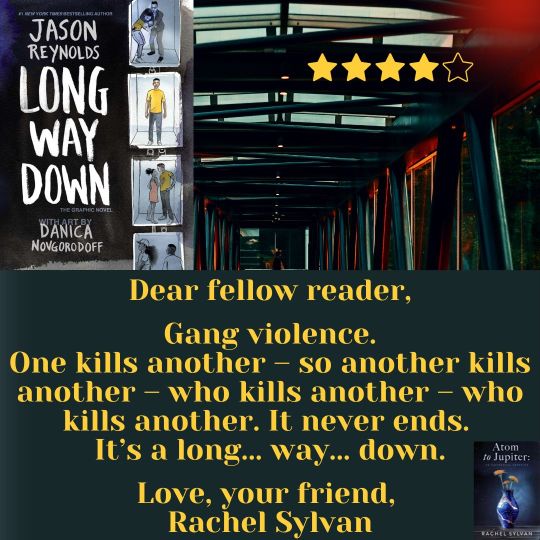
"Long Way Down" by Jason Reynolds
#diverse books#diverse authors#African American books#African American authors#Black books#Black authors
0 notes
Text
#short story#african american authors#storytelling#black writers#creative writing#black woman writer#black creators#black creatives#healing
1 note
·
View note
Text
ALA's Top Ten Challenged Books: #8 The Bluest Eye by Toni Morrison
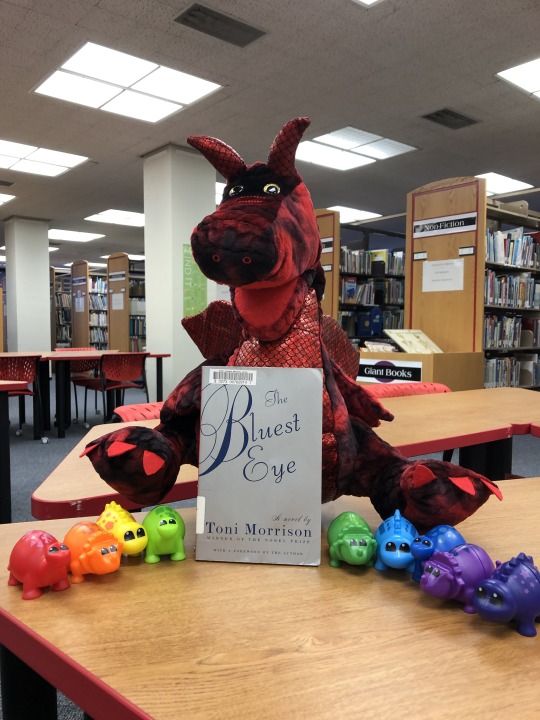
Although not technically a "TMC" book, The Bluest Eye by Toni Morrison might still find its way into high school curricula. It was Morrison's first novel, and features an African-American protagonist who wishes she could be different, more like the while people she sees in her life. It's set during the great depression and includes many race-oriented themes throughout, along with many other difficult topics.
It made ALA's Top Ten Challenged Books from 2021 of being banned and challenged because:
it depicts child sexual abuse and was considered sexually explicit
#tmc#memorial library#teaching materials center#suny cortland#banned books#banned books week#race#racism#african americans#african american authors
0 notes
Text
One Day Left!
One more day before The Darkest Knight returns to regular price 🖤🖤🖤
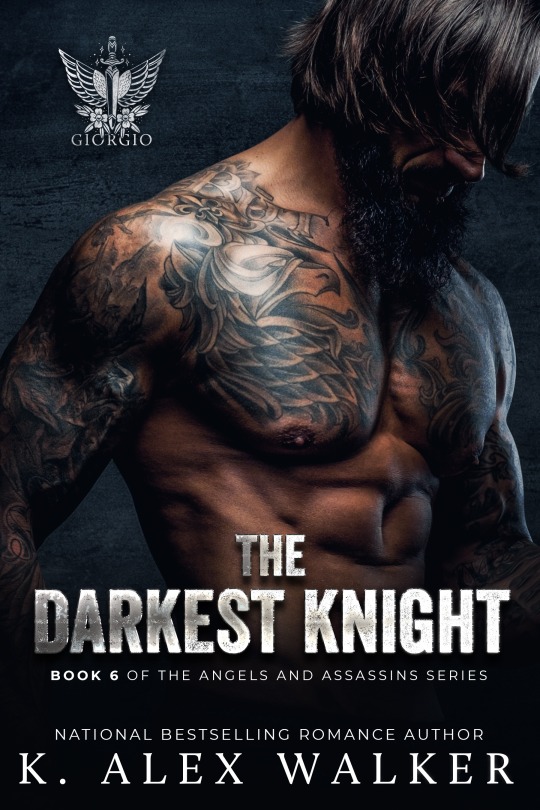
View On WordPress
#african american authors#Angels and Assassins#black romance novels#interracial romance#interracial romance novels bwwm#k alex walker
0 notes
Text
Still here and also
Very much so
Not.
D. Ondria
#ecosystem of creatives#african american writers#blackgirlmagic#african american authors#originalbydondria#creative writing#black creatives#black women writers#black writers#original by d ondria
2 notes
·
View notes
Text
Hoodoo, Rootwork and Conjure sources by Black Authors
Because you should only ever be learning your ancestral ways from kinfolk. Here's a compilation of some books, videos and podcast episodes I recommend reading and listening to, on customs, traditions, folk tales, songs, spirits and history. As always, use your own critical thinking and spiritual discernment when approaching these sources as with any others.
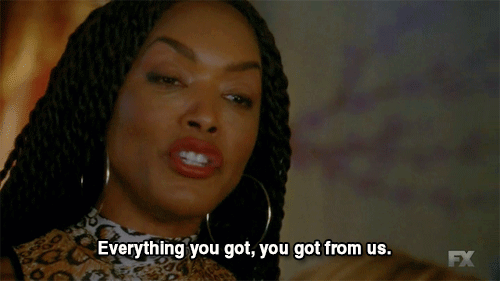
Hoodoo in America by Zora Neale Hurston (1931)
Mules and Men by Zora Neale Hurston (1936)
Tell my horse by Zora Neale Hurston (1938)
Let Nobody Turn Us Around: An African American Anthology by Manning Marable and Leith Mullings, editors (2003)
Black Magic: Religion and the African American Conjuring Tradition by Yvonne P. Chireau (2006)
African American Folk Healing by Stephanie Mitchem (2007)
Hoodoo Medicine: Gullah Herbal Remedies by Faith Mitchell (2011)
Mojo Workin': The Old African American Hoodoo System by Katrina Hazzard-Donald (2012)
Rootwork: Using the Folk Magick of Black America for Love, Money and Success by Tayannah Lee McQuillar (2012)
Talking to the Dead: Religion, Music, and Lived Memory among Gullah/Geechee Women by LeRhonda S. Manigault-Bryant (2014)
Working the Roots: Over 400 Years Of Traditional African American Healing by Michele Elizabeth Lee (2017)
Barracoon: The Story of the Last "Black Cargo" by Zora Neale Hurston (2018)
Jambalaya: The Natural Woman's Book of Personal Charms and Practical Rituals by Luisa Teish (2021)
African American Herbalism: A Practical Guide to Healing Plants and Folk Traditions by Lucretia VanDyke (2022)
youtube
youtube
youtube
youtube
These are just some suggestions but there's many many more!! This is by no means a complete list.
I recommend to avoid authors who downplay the importance of black history or straight out deny how blackness is central to hoodoo. The magic, power and ashé is in the culture and bloodline. You can't separate it from the people. I also recommend avoiding or at the very least taking with a huge grain of salt authors with ties to known appropriators and marketeers, and anyone who propagates revisionist history or rather denies historical facts and spreads harmful conspiracy theories. Sadly, that includes some black authors, particularly those who learnt from, and even praise, white appropriators undermining hoodoo and other african and african diasporic traditions. Be careful who you get your information from. Keeping things traditional means honoring real history and truth.
Let me also give you a last but very important reminder: the best teachings you'll ever get are going to come from the mouths of your own blood. Not a book or anything on the internet. They may choose to put certain people and things in your path to help you or point you in the right direction, but each lineage is different and you have to honor your own. Talk to your family members, to the Elders in your community, learn your genealogy, divine before moving forwards, talk to your dead, acknowledge your people and they'll acknowledge you and guide you to where you need to be.
May this be of service and may your ancestors and spirits bless you and yours 🕯️💀
#hoodoo#conjure#rootwork#black hoodoo authors#Youtube#hoodoo books#african american conjure#african american history#black history#black folklore#african american folklore#black magic#african american magic#witches of color#ATRs#Spotify
1K notes
·
View notes
Text

Zora Neile Hurston (1891-1960)
Zora Neale Hurston was an American author, anthropologist, and filmmaker. She portrayed racial struggles in the early-1900s American South and published research on hoodoo. The most popular of her four novels is Their Eyes Were Watching God, published in 1937. ~ Wikipedia
#zora neale hurston#american authors#discrimination#quotation#american filmmakers#african american history
167 notes
·
View notes
Text
I was the only Negro passenger on the plane, and I followed everybody else going into the Dobbs House to get lunch. When I got there one of the waiters ushered me back and I thought they were giving me a very nice comfortable seat with everybody else and I discovered they were leading me to a compartment in the back. And this compartment was around you, you were completely closed in, cut off from everybody else, so I immediately said that I couldn’t afford to eat there. I went on back and took a seat out in the main dining room with everybody else and I waited there, and nobody served me. I waited a long time, everybody else was being served. So finally I asked for the manager and he came out and started talking, and I told him the situation and he talked in very sympathetic terms. And I never will forget what he said to me.
He said, “Now Reverend, this is the law; this is the state law and the city ordinance and we have to do it. We can’t serve you out here but now everything is the same. Everything is equal back there; you will get the same food; you will be served out of the same dishes and everything else; you will get the same service as everybody out here.”
And I looked at him and started wondering if he really believed that. And I started talking with him. I said, “I don’t see how I can get the same service. Number one, I confront aesthetic inequality. I can’t see all these beautiful pictures that you have around the walls here. We don’t have them back there. But not only that, I just don’t like sitting back there and it does something to me. It makes me almost angry. I know that I shouldn’t get angry. I know that I shouldn’t become bitter, but when you put me back there something happens to my soul, so that I confront inequality in the sense that I have a greater potential for the accumulation of bitterness because you put me back there. And then not only that, I met a young man from Mobile who was my seat mate, a white fellow from Mobile, Alabama, and we were discussing some very interesting things. And when we got in the dining room, if we followed what you’re saying, we would have to be separated. And this means that I can’t communicate with this young man. I am completely cut off from communication. So I confront inequality on three levels: I confront aesthetic inequality; I confront inequality in the sense of a greater potential for the accumulation of bitterness; and I confront inequality in the sense that I can’t communicate with the person who was my seat mate.”
And I came to see what the Supreme Court meant when they came out saying that separate facilities are inherently unequal. There is no such thing as separate but equal.
The Autobiography of Martin Luther King Jr.
#MLK#Martin Luther King Jr#Clayborne Carson#The Autobiography of Martin Luther King Jr#1960s#civil rights#civil rights movement#black history#black history month#black lives matter#black history matters#black authors#history#blm#black voices#bipoc#african american#peaceful protests#nonviolent resistance#atypicalreads#noncooperation#passive resistance
529 notes
·
View notes
Text

All racism has ever done is slow down the creation of new beauty💜
🇺🇸👩🏾🦱📖
#history#phillis wheatley#poet#united states#boston#african american history#book#black girl magic#historical women#american revolution#female author#womens history#black writers#usa#women empowerment#african american women#girl power#england#black history#educated black women#black empowerment#historical figures#american colonies#american history#education#nickys facts
90 notes
·
View notes
Text
Today's feminist movement has a glaring blind spot, and paradoxically, it is women. Mainstream feminists rarely talk about meeting basic needs as a feminist issue, argues Mikki Kendall, but food insecurity, access to quality education, safe neighborhoods, a living wage, and medical care are all feminist issues. All too often, however, the focus is not on basic survival for the many, but on increasing privilege for the few. That feminists refuse to prioritize these issues has only exacerbated the age-old problem of both internecine discord and women who rebuff at carrying the title. Moreover, prominent white feminists broadly suffer from their own myopia with regard to how things like race, class, sexual orientation, and ability intersect with gender. How can we stand in solidarity as a movement, Kendall asks, when there is the distinct likelihood that some women are oppressing others?

#book: hood feminism#author: mikki kendall#genre: feminism#genre: non fiction#genre: african american literature#year: 2020s
15 notes
·
View notes
Text
And I sing, again, those songs because I know
The value of sweet music when we need to pass
The time without wondering what rots beneath our feet.
Jericho Brown, Shovel
#Jericho Brown#Shovel#The Tradition#sing#songs#sweet music#American poetry#African American literature#BIPOC author#poetry#poetry quotes#quotes#quotes blog#literary quotes#literature quotes#literature#book quotes#books#words#text
13 notes
·
View notes